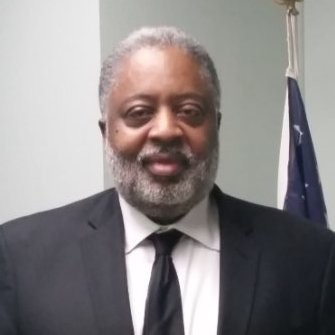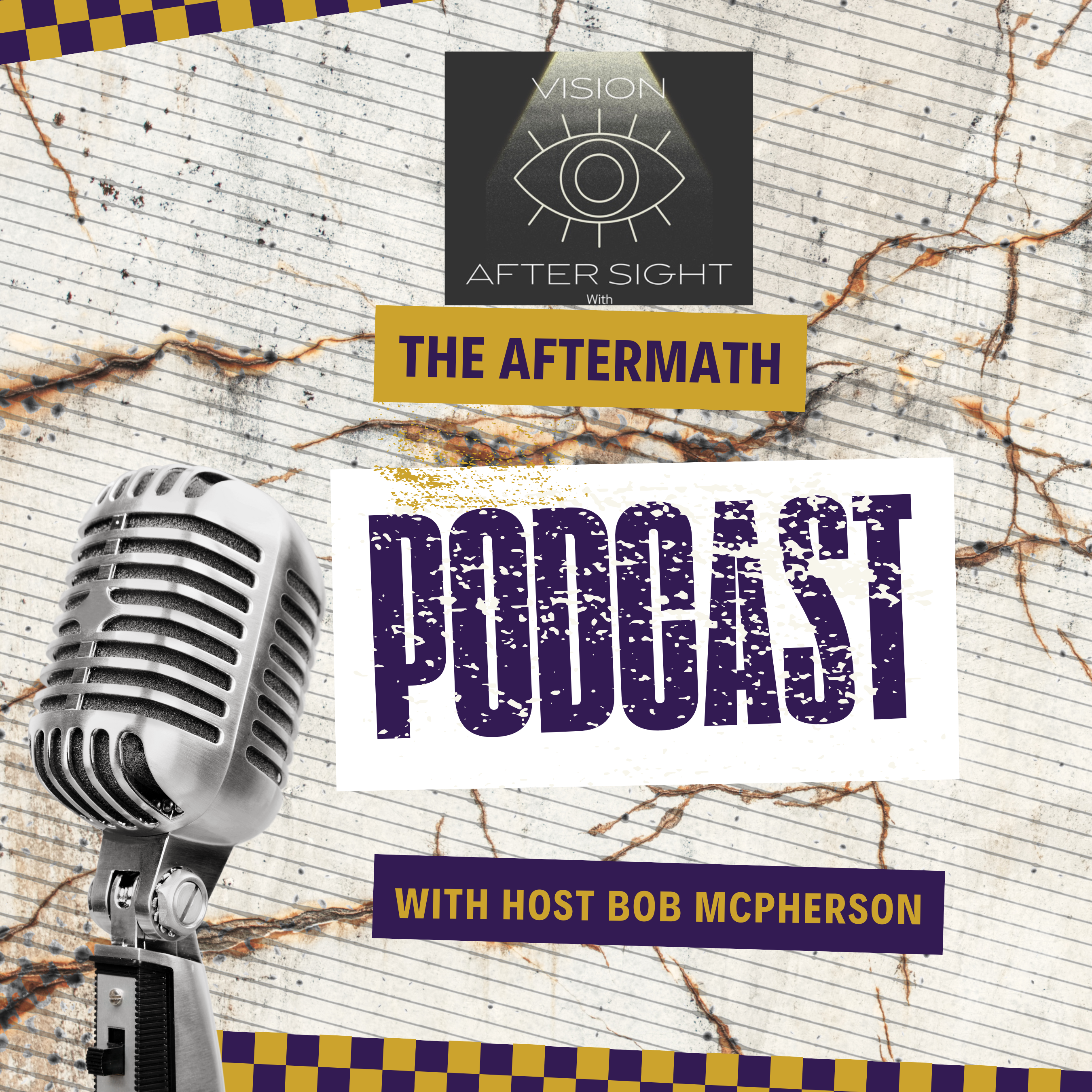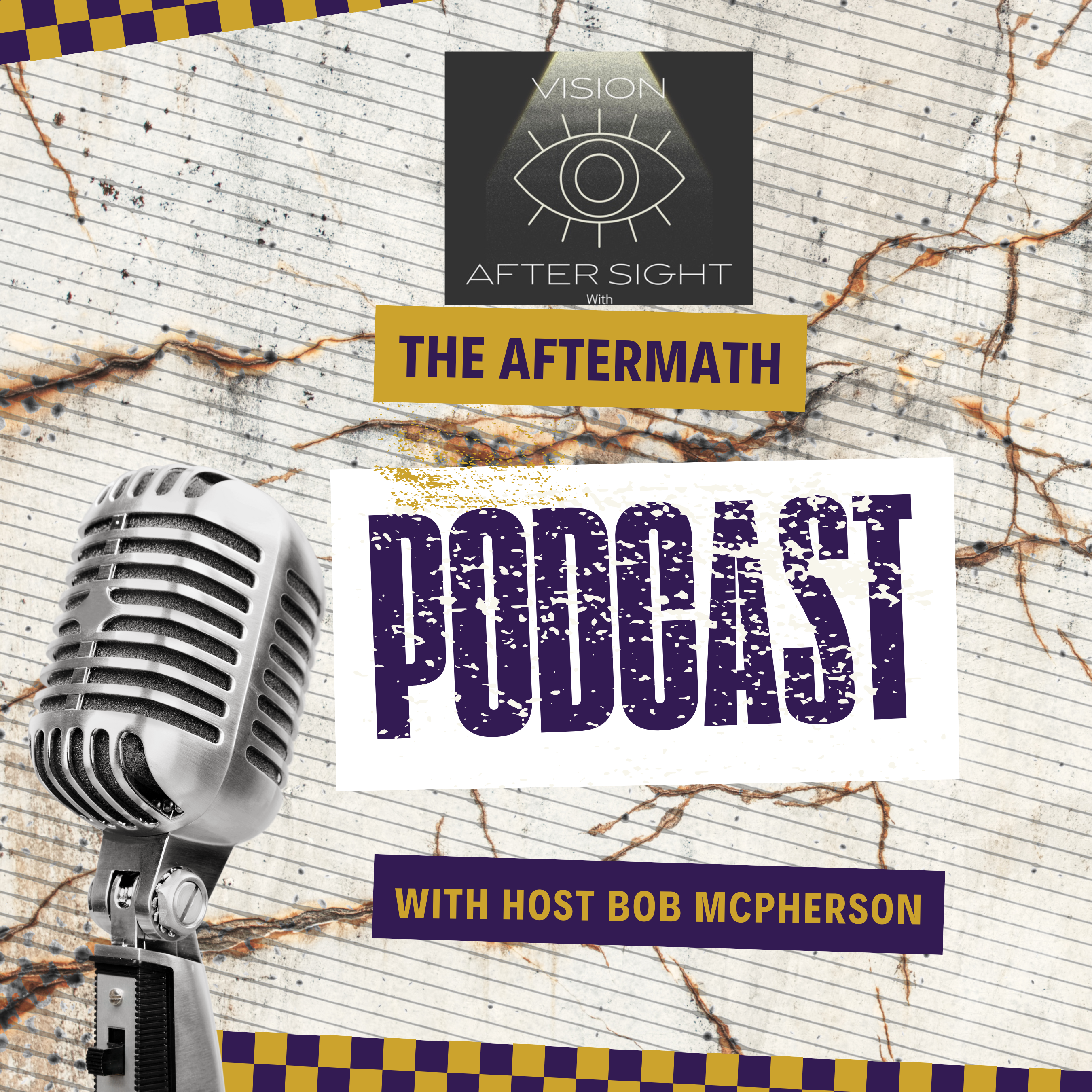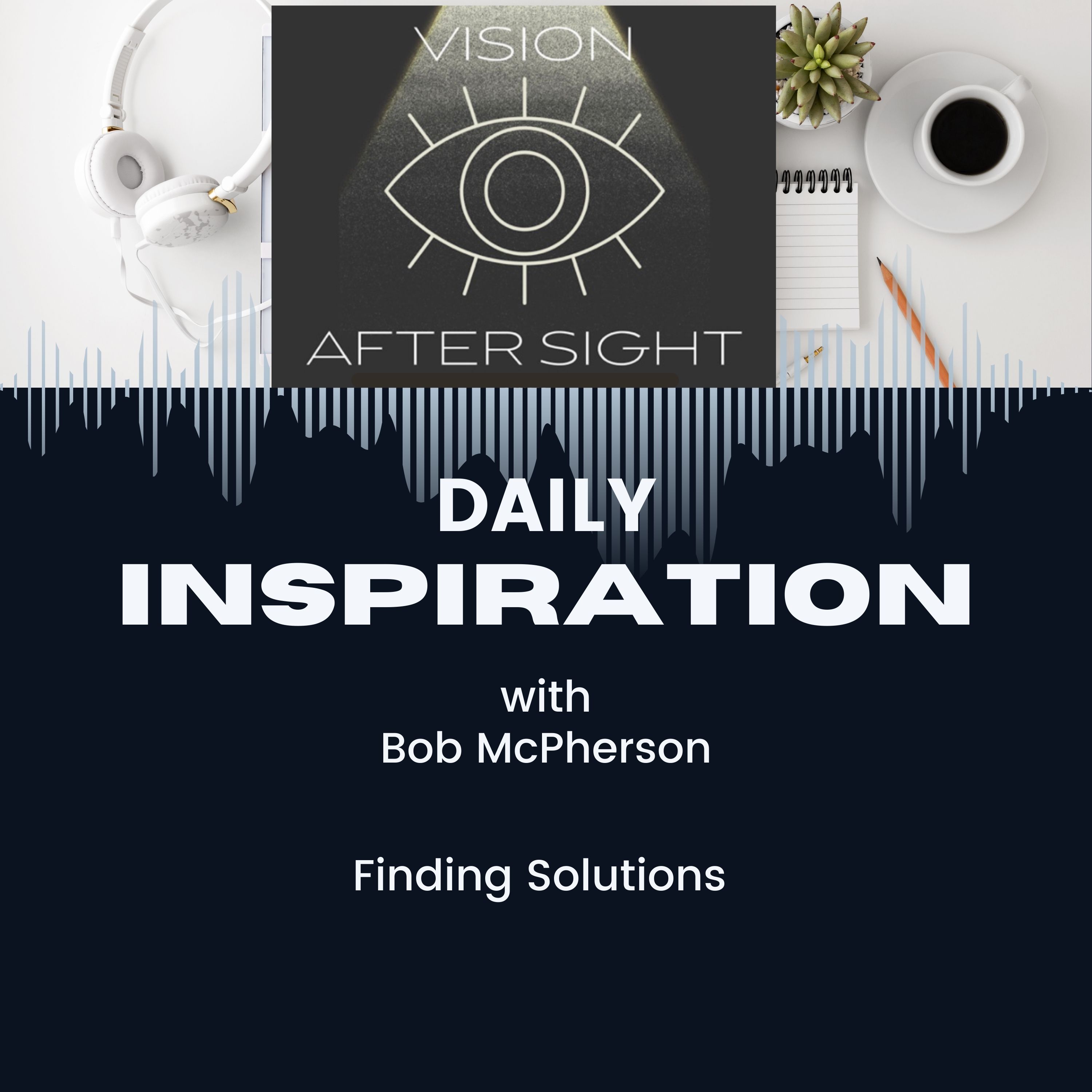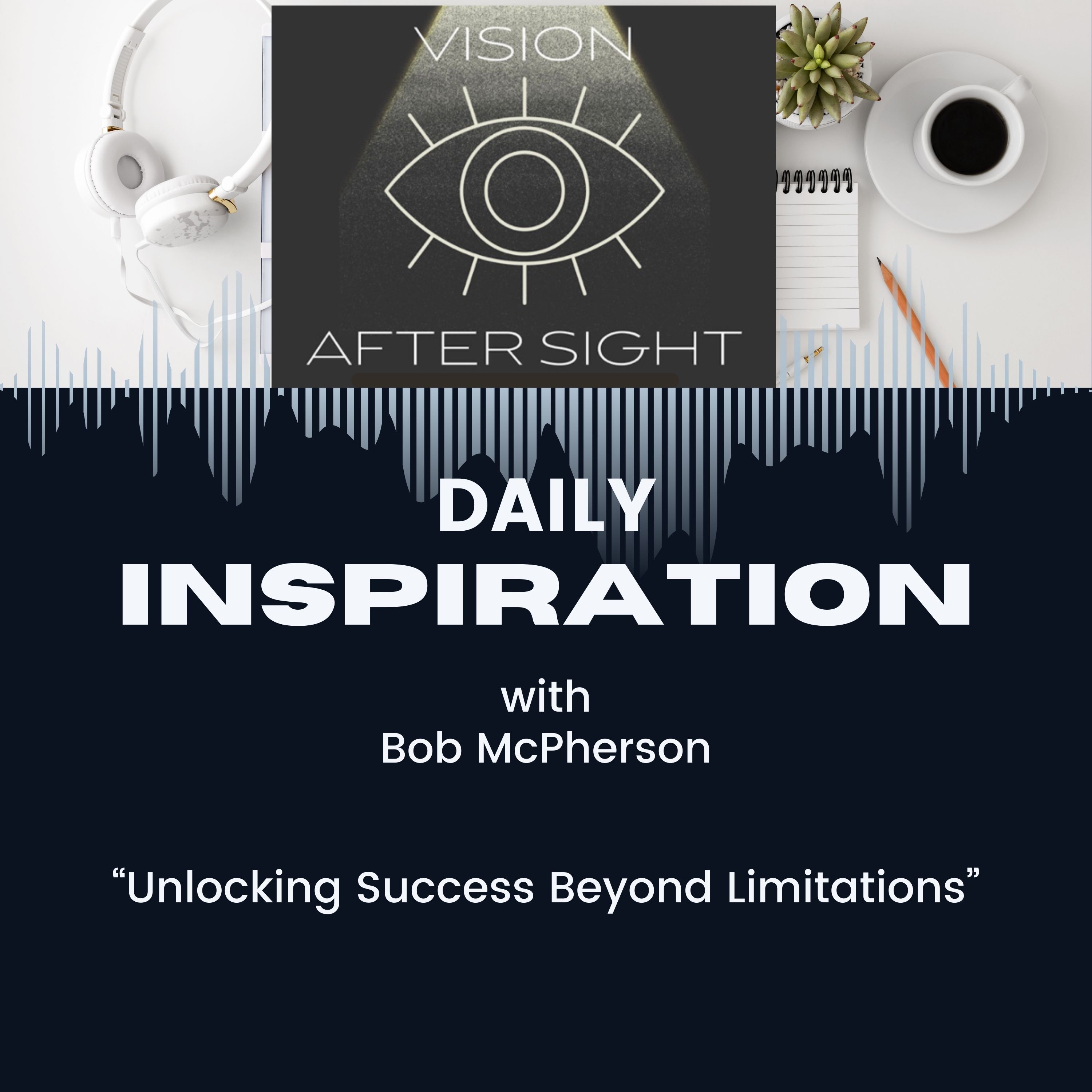Episode Transcript
[00:00:00] Speaker A: On this episode of Vision after the Aftermath, host Bob McPherson sits down with Gwen Womack. A dedicated advocate for individuals navigating life after vision loss.
Gwen shares her powerful don't give up because you're blind, but you first have to accept your eye loss. She emphasizes the importance of joining support groups like Intervision and Helping Hands, as well as organizations such as the Greater Detroit Agency for the Blind and Visually Impaired and the Disability Network of Wayne county and Greater Detroit in Southfield, Michigan. Gwen encourages newly blind individuals to attend these groups, explore their options, and connect with others who truly understand their journey. Her wisdom and heartfelt advice provide hope and community for anyone facing this life transition.
[00:00:51] Speaker B: Now, Gwen, what's your present eye status? Is it sighted, partially sighted or blind?
[00:00:59] Speaker C: Blind.
[00:01:01] Speaker B: When did you lose your eyesight?
[00:01:03] Speaker C: The last bit on 2018.
[00:01:08] Speaker B: 2018.
And what caused it?
[00:01:12] Speaker C: Iritis, followed by other things like glaucoma and.
[00:01:18] Speaker B: But iritis was the un.
[00:01:20] Speaker C: Yes, that was the initial thing.
[00:01:24] Speaker B: Have you participated in any rehabilitation or therapy on your journey?
[00:01:29] Speaker C: I've gone to specialists for rehabilitation.
I've gone to psychiatry and stuff for other types of rehabilitation.
[00:01:42] Speaker B: Okay. Now with your rehabilitation, did you participate in any program with the Commission of the Blind or anything like that?
[00:01:50] Speaker C: Yes, I did.
[00:01:52] Speaker B: What was that experience?
[00:01:53] Speaker C: Well, it was helpful because they sent me to Kalamazoo and they helped me to learn how to deal with being blind.
[00:02:03] Speaker B: So Kalamazoo, that's a campus dedicated to blind rehabilitation?
[00:02:08] Speaker C: Yes, it is. And I stayed there one month.
[00:02:12] Speaker B: Would you recommend that for newly blind people?
[00:02:19] Speaker C: I don't know if I would recommend it for newly blind people. But it helps along the way when you finally acknowledge that you are blind.
[00:02:28] Speaker B: And you're looking for a solution.
[00:02:29] Speaker C: Yes.
[00:02:34] Speaker B: Now, what advice would you give today to your six month old blind person?
[00:02:43] Speaker C: Well, it takes a while for you to accept that you are losing your eyesight. That's a major thing. So I think talking with other people, interacting with other people who have lost their eyesight, that helps a lot. You realize that you are not the only one that's dealing with this. So I think dealing with other people who have similar problems is a major thing. And that helps you to accept the fact that you can live and be help happy.
[00:03:12] Speaker B: See. And that's the purpose of this aftermath, is to introduce blind people along their blind journey to other people that are on a similar journey.
[00:03:25] Speaker C: Yes.
[00:03:26] Speaker B: Now, what did you do before you lost your eyesight? Did you have a career?
[00:03:30] Speaker C: Yes, I was a real estate agent and an rn.
[00:03:34] Speaker B: Okay, and so what do you do now?
[00:03:38] Speaker C: Well, I don't do any of those things, unfortunately, but I'm really just involved with other groups and I go out a lot with my friends.
I spend a lot of time with them and I just interact with other people. That's mainly what I'm doing.
[00:03:57] Speaker B: You're retired?
[00:03:58] Speaker C: Yes, I'm retired.
[00:03:59] Speaker B: You're retired, but you do interact with support groups of the blind?
[00:04:03] Speaker C: Yes, support groups.
[00:04:06] Speaker B: So would you like to give them.
[00:04:08] Speaker C: A shout out for Intervision? Yes, I would. That's in Detroit. Yes, it is. It's in Detroit. Michigan. Disability Network.
[00:04:17] Speaker B: Disability Network.
[00:04:18] Speaker C: I interact with them. Greater Detroit.
[00:04:22] Speaker B: Greater Detroit.
[00:04:23] Speaker C: And Health for the Blind. And Helping Hands. Yes.
[00:04:29] Speaker B: Where is Helping Hands Focus?
[00:04:30] Speaker C: Well, right now they're using the facilities over on how to Drive in Detroit.
[00:04:36] Speaker B: Would you recommend newly blind people or people that have not heard of those to seek involvement with either of those?
[00:04:47] Speaker C: Well, I think it would help. It wouldn't hurt for them to just sit in on all of those, you know, to see how you feel about it and just listen initially. Just listen and interact with other people. So I don't think it would be a bad idea for them to go to any or all of them.
[00:05:07] Speaker B: Now, what motto do you live your life by today, if there is such one?
[00:05:14] Speaker C: Well, I'm trying to be a positive person, and then I have a lot of feelings about things that I'd like to do and I'm trying to follow up on some of those things. Don't just give up and say that you're blind and that's it. So I try to be. To interact with other people and people who are motivated to do things.
So that's why my motto is to try to be motivated and not depressed and sitting alone in the house on your own.
[00:05:43] Speaker B: Do you utilize social media at all?
[00:05:47] Speaker C: No.
[00:05:48] Speaker B: Do you.
Do you utilize the smarter speakers like Alexa?
The Google speaker?
[00:05:57] Speaker C: Yes.
[00:05:58] Speaker B: Which one?
[00:05:58] Speaker C: Alexa.
[00:05:59] Speaker B: Do you listen to podcasts now?
[00:06:02] Speaker C: Well, sometimes I'll find one on my phone and yes, I do listen.
[00:06:08] Speaker B: So you. What kind of phone do you have?
[00:06:10] Speaker C: An iPhone.
[00:06:11] Speaker B: Okay, so you listen through the Apple podcast.
[00:06:14] Speaker C: Yes.
[00:06:15] Speaker B: Okay. Because our podcast is available on all of those platforms. Amazon platform, the Apple platform, the Google platform, the Spotify platform. All you gotta do is just say play vision after type, and it'll bring up a list of those and you'll be able to play it. Now, once your episode goes up, we'll either send you an email or text message letting you know that you live.
[00:06:46] Speaker C: Oh, okay.
[00:06:47] Speaker B: And then you can share that with your spirit of influence. Do you have any questions of me?
[00:06:54] Speaker C: No, not at this time, but I certainly will listen when you let me know, and I will refer other people.
[00:07:01] Speaker B: Absolutely. Because, see, at the end of the day, the purpose of this podcast is simply to introduce blind people to other blind people. And this is not just a local thing. We would like this to be international.
So the experiences, although the locale may be different, the experiences and the challenges are similar.
If I have benefited from some and I can share that with you, then it's like paying it forward, you know.
[00:07:34] Speaker C: I think that's very valuable because a lot of blind people don't know other blind people, and they don't know about the experiences that other blind people are having. So this is very valuable from what I can see of it right now.
[00:07:48] Speaker B: I started losing my eyesight at age 57. Right. I was the first blind person I ever met, and I know thousands of people, but I didn't know any blind people.
[00:07:58] Speaker C: Yes. And I think that's.
[00:07:59] Speaker B: I didn't get to meet any until I started Joanie's support group. Because when I went to.
When I went to the Bureau of the Blind, the people they sent me were all sighted, you know, so my counselor, she was cited, the coordinator, she was cited at my doctor's office. I was caught up in the medical system, which is eyesight thing. For 10 years, I never saw a blind person or a person with a cane in any of my doctor's office. So it's like, well, how is it possible that I'm here once every two weeks and I don't see a blind person, but at the end of my journey with them, guess what? I'm blind.
[00:08:42] Speaker C: I noticed that at my doctor's office, I was one of very few blind people. And you have this feeling that once you lose your eyesight, they really don't have time for you. So it's kind of a funny feeling to realize that to be abandoned after.
[00:08:58] Speaker B: They'Ve been holding your hand through all these procedures and eye drops, surgeries, and advice, and then once they've exhausted the money, they don't even call you on your birthday.
[00:09:13] Speaker C: That's right. You one of very few people that are there at the office.
All right, well, thank you very much.
[00:09:20] Speaker B: Well, no, thank you. This concludes our interview.
[00:09:24] Speaker C: All right. All right. Thank you.
[00:09:26] Speaker A: Thank you for joining us on Vision After Sight, the Aftermath with your host, Bob McPherson. Bob hopes today's conversations offered you insight, inspiration, and a fresh perspective on life beyond sight.
Remember, strength is a journey, and every story shared helps build compassion and meaningful connections. As we sign off, Bob encourages you to continue seeing the world in your own unique way. Don't forget to subscribe, like share and leave a comment. We'd love to hear your thoughts. Be sure to check out the links below to the organizations mentioned in this episode and stay connected with us on our social media platforms. Links below. Until next time, Bob promises more inspiring stories on the next episode of Vision the Aftermath. Take care.
